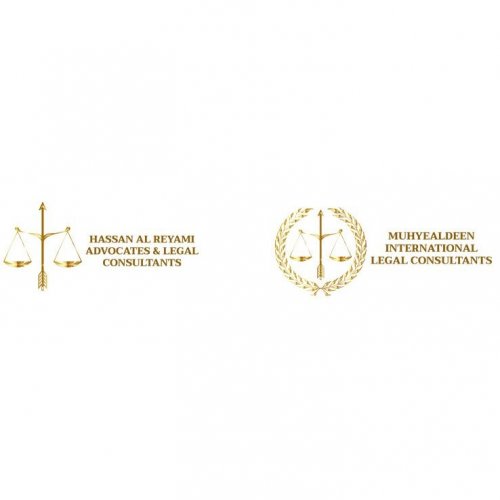Best Public-Private Partnerships (PPP) Lawyers in Abu Dhabi
Share your needs with us, get contacted by law firms.
Free. Takes 2 min.
List of the best lawyers in Abu Dhabi, United Arab Emirates

The Black Robe For Legal Consultancy & Debit Collection
1 hour Free ConsultationAbout Public-Private Partnerships (PPP) Law in Abu Dhabi, United Arab Emirates
Public-Private Partnerships (PPP) are collaborative arrangements between government entities and private sector companies to deliver public infrastructure or services. These partnerships leverage the expertise, efficiency, and funding capabilities of the private sector to support the long-term development goals of Abu Dhabi and the United Arab Emirates. In Abu Dhabi, PPPs are guided by dedicated laws and policies to ensure that both public interests and private investments are protected. The PPP framework supports major sectors such as transportation, water, energy, healthcare, and education, with an emphasis on sustainable development, innovation, and strategic value for all stakeholders.
Why You May Need a Lawyer
In the dynamic landscape of Abu Dhabi's PPP initiatives, legal advice can be crucial for several reasons. Engaging in a PPP involves complex processes, from bidding and negotiation to contract drafting and project management. You may need a lawyer in the following situations:
- Understanding the PPP regulatory framework and evaluating project eligibility.
- Participating in tenders, preparing bids, or responding to Requests for Proposals (RFPs).
- Negotiating and drafting PPP contracts to safeguard your interests.
- Advising on compliance with local laws and sector-specific regulations.
- Managing risks associated with project financing, land acquisition, and resource allocation.
- Handling disputes, arbitration, or claims arising during project implementation or operation.
- Advising on project structuring, joint venture agreements, and stakeholder management.
- Assisting with project handover, operation, or transfer procedures.
- Navigating exit strategies or contract termination processes.
- Ensuring compliance with environmental, labor, and safety regulations specific to PPP projects.
Local Laws Overview
Abu Dhabi has established a clear and supportive legal framework for Public-Private Partnerships, aiming to attract foreign investment and implement strategic public projects. The key legal instrument is Abu Dhabi Law No. 2 of 2019 on Public-Private Partnerships, which provides comprehensive guidelines on how PPPs are planned, procured, executed, and regulated. This law is administered by the Department of Finance - Abu Dhabi and outlines procedures for selecting projects, evaluating bids, and conducting transparent procurement processes.
The PPP law covers contract models, risk allocation, payment mechanisms, dispute resolution, and project management standards. Key aspects of the law include:
- Clear criteria for project eligibility and risk sharing between the public and private parties.
- Requirements for thorough due diligence, feasibility studies, and value-for-money assessments.
- Mandatory competitive tendering to promote transparency and fairness.
- Provisions for monitoring, reporting, and auditing throughout the project lifecycle.
- Guidelines for dispute settlement, often referencing local courts or arbitration in Abu Dhabi.
- Compliance requirements with other local laws, such as labor, environmental, and investment regulations.
Other relevant legal considerations may involve company formation, foreign ownership restrictions, intellectual property laws, and sector-specific rules depending on the nature of the PPP project.
Frequently Asked Questions
What is a Public-Private Partnership (PPP) in Abu Dhabi?
A Public-Private Partnership in Abu Dhabi is a contractual arrangement between a government entity and a private sector partner for the development, financing, operation, and maintenance of public infrastructure or services.
Which law governs PPP projects in Abu Dhabi?
PPP projects in Abu Dhabi are governed by Law No. 2 of 2019 regarding Public-Private Partnerships and its related executive regulations.
Who can participate in PPP projects in Abu Dhabi?
Both domestic and international private sector companies may participate, subject to fulfilling pre-qualification criteria, financial capabilities, and technical expertise as specified in the project tender.
What sectors are open to PPP arrangements?
Common sectors for PPP in Abu Dhabi include transportation, water and power generation, education, healthcare, waste management, and other infrastructure projects.
How are PPP projects procured?
PPP projects are generally procured through a competitive and transparent bidding process, following the evaluation of feasibility studies and a value-for-money assessment by the relevant government authority.
What are the typical risks involved in PPP projects?
Risks may include financial risks, construction or completion risks, regulatory risks, operational risks, market demand risks, and force majeure or political risks. The law provides mechanisms for fair risk allocation between partners.
How are disputes in PPP projects resolved?
Disputes are typically resolved through negotiation, mediation, or arbitration as outlined in the PPP contract. Abu Dhabi's legal system and recognized arbitration centers may be used.
Can foreign companies have full ownership in a PPP joint venture?
Recent legal reforms in the UAE have eased foreign ownership restrictions, but ownership requirements may vary based on the sector, project type, and contractual agreements.
Are there requirements for environmental compliance in PPP projects?
Yes, all PPP projects must adhere to local environmental standards and obtain the necessary approvals and permits as part of the project's feasibility and execution phases.
How long does a typical PPP contract last?
PPP contract durations vary depending on the project but can range from 10 to 35 years or longer, depending on the scope, financing, and operational requirements.
Additional Resources
If you seek more information or require support with PPP projects in Abu Dhabi, consider reaching out to the following resources:
- Abu Dhabi Department of Finance - The primary regulatory body overseeing PPP projects and approving new initiatives.
- Abu Dhabi Investment Office (ADIO) - Provides detailed guidance on investment opportunities, regulations, and PPP frameworks.
- Abu Dhabi Chamber of Commerce and Industry - Offers networking, advocacy, and advisory services for private investors in PPP projects.
- Legal consultants specialized in PPP - Law firms and independent consultants with experience in Abu Dhabi’s PPP laws and contractual practice.
- International organizations - Entities such as the World Bank or International Finance Corporation offer guidance, best practices, and project templates for PPPs globally and regionally.
Next Steps
If you are considering involvement in a Public-Private Partnership in Abu Dhabi or need legal assistance, it is advisable to take the following steps:
- Identify the nature and scope of your intended PPP project.
- Consult with a qualified legal advisor or law firm experienced in Abu Dhabi’s PPP frameworks.
- Review the applicable laws, regulations, and procurement procedures with your legal counsel.
- Prepare any necessary business or technical documentation, including feasibility studies and partnership proposals.
- Engage with relevant government authorities or regulatory bodies to clarify requirements and submission deadlines.
- Ensure compliance with all local laws, including labor, environmental, company formation, and sector-specific regulations.
- Negotiate and draft clear contractual agreements that outline risk sharing, responsibilities, and dispute resolution mechanisms.
- Stay informed about updates to PPP laws and policies in Abu Dhabi to proactively manage compliance and risk.
Legal expertise can help protect your interests and streamline your involvement in Abu Dhabi’s growing PPP sector, ensuring successful project outcomes.
Lawzana helps you find the best lawyers and law firms in Abu Dhabi through a curated and pre-screened list of qualified legal professionals. Our platform offers rankings and detailed profiles of attorneys and law firms, allowing you to compare based on practice areas, including Public-Private Partnerships (PPP), experience, and client feedback.
Each profile includes a description of the firm's areas of practice, client reviews, team members and partners, year of establishment, spoken languages, office locations, contact information, social media presence, and any published articles or resources. Most firms on our platform speak English and are experienced in both local and international legal matters.
Get a quote from top-rated law firms in Abu Dhabi, United Arab Emirates — quickly, securely, and without unnecessary hassle.
Disclaimer:
The information provided on this page is for general informational purposes only and does not constitute legal advice. While we strive to ensure the accuracy and relevance of the content, legal information may change over time, and interpretations of the law can vary. You should always consult with a qualified legal professional for advice specific to your situation.
We disclaim all liability for actions taken or not taken based on the content of this page. If you believe any information is incorrect or outdated, please contact us, and we will review and update it where appropriate.
















